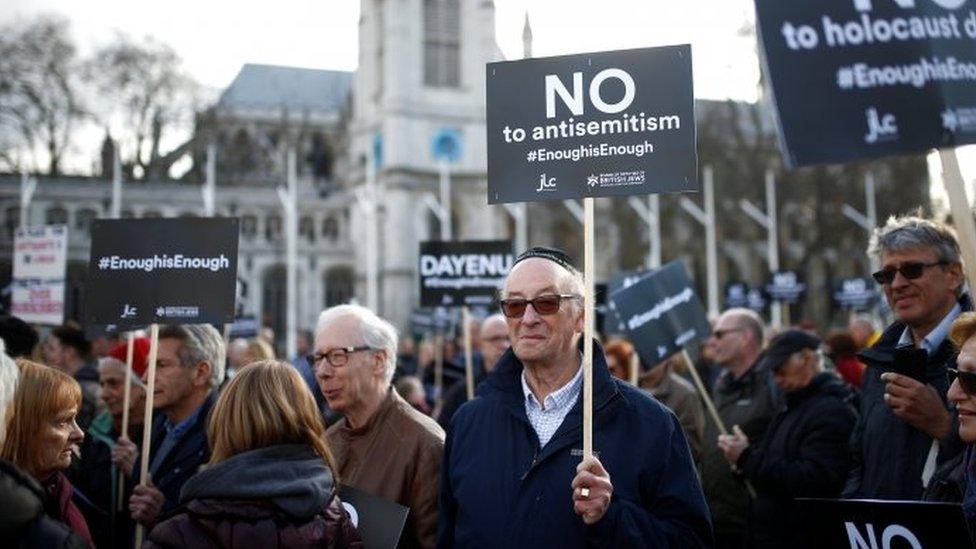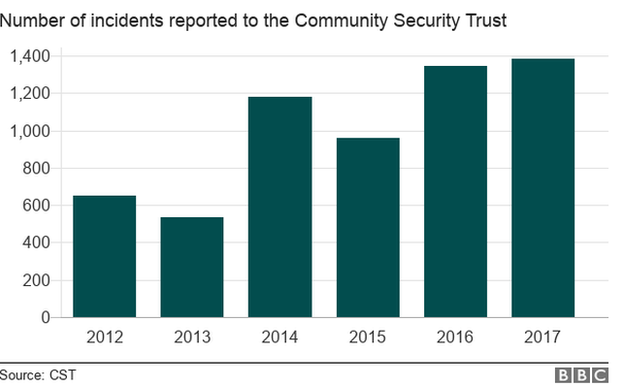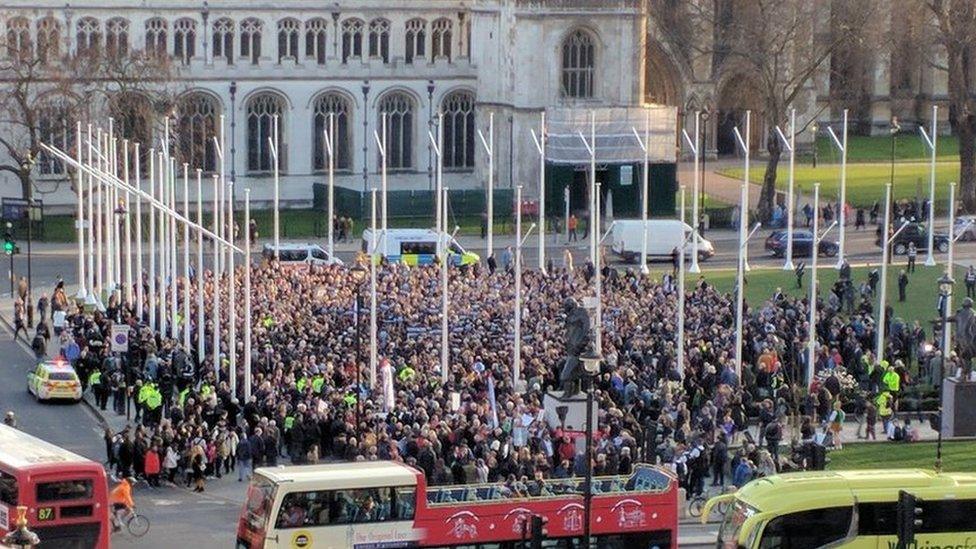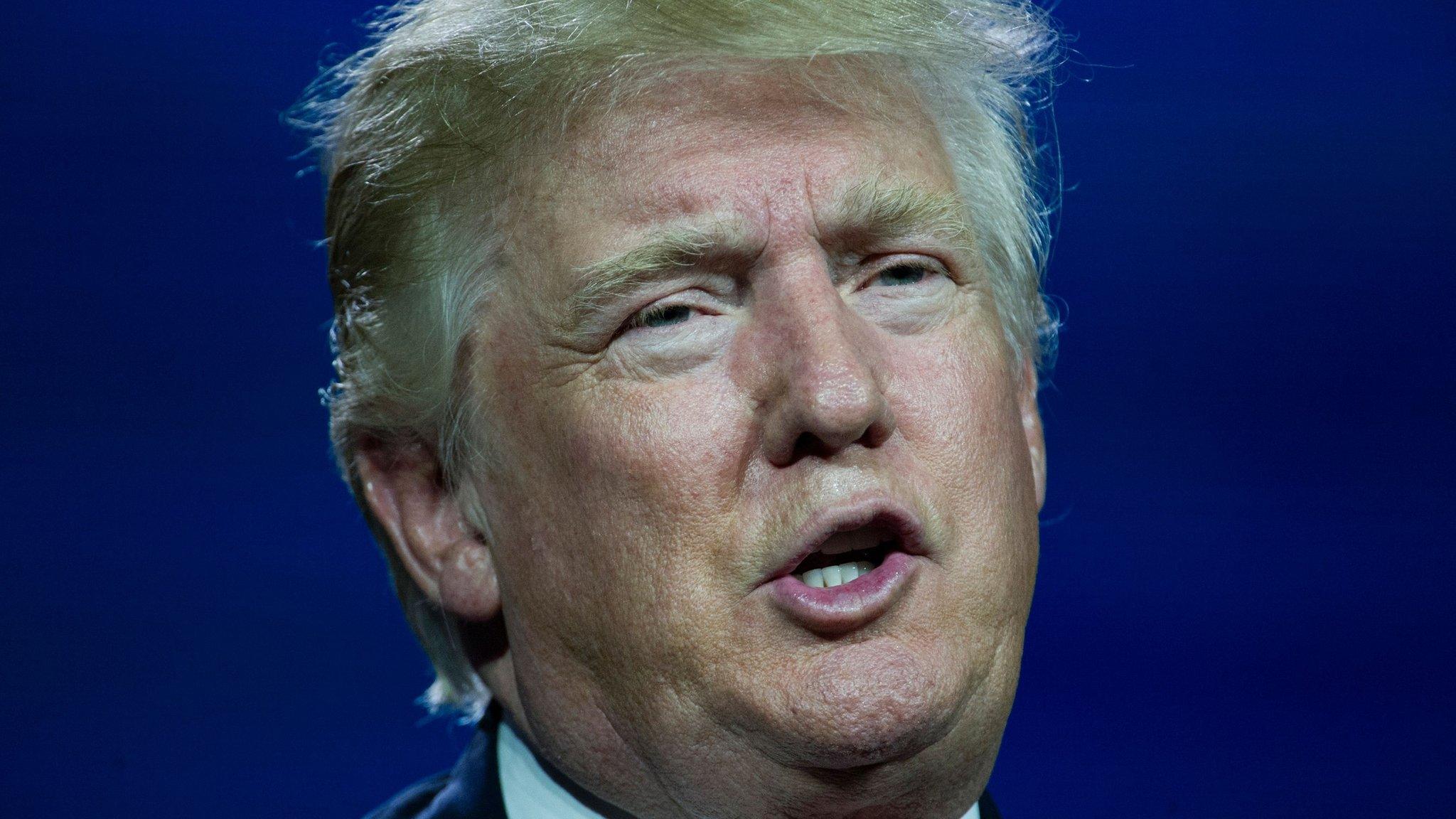How widespread is anti-Semitism in the UK?
- Published

A protest against anti-Semitism has been taking place at Westminster
Labour leader Jeremy Corbyn has apologised for "pockets of anti-Semitism" in the Labour Party. But how widespread is it generally?
On the eve of Passover, which begins this Friday evening, members of Britain's Jewish community are preparing Seder meals that will include four cups of wine, the eating of unleavened bread and a retelling of the story of the exodus of the Israelites from slavery in ancient Egypt.
The eight-day festival is known in Hebrew as Pesach (meaning "to pass over") because God passed over Jewish homes when killing the firstborn as the last of the 10 plagues inflicted on the Egyptians, as told in the book of Exodus.
The Seder service is also when Jews sing the traditional song, Dayenu. The Hebrew word is translated as "enough".
This week, that message is also being sent to Mr Corbyn.
The Board of Deputies of British Jews and the Jewish Leadership Council have issued a letter saying there has been a "repeated institutional failure" to properly address anti-Semitism.
It accuses Mr Corbyn of being "ideologically fixed within a far-left world view that is instinctively hostile to mainstream Jewish communities".
In a recent tweet, Labour MP Luciana Berger sought clarification from the leader's office on comments he made in 2012, in which he offered support for a mural which has been condemned for being anti-Semitic.
Allow X content?
This article contains content provided by X. We ask for your permission before anything is loaded, as they may be using cookies and other technologies. You may want to read X’s cookie policy, external and privacy policy, external before accepting. To view this content choose ‘accept and continue’.
Mr Corbyn said he regretted not looking more closely at the image, which he called "deeply disturbing".
In a letter to Jewish leaders, Mr Corbyn describes himself as a "militant opponent of anti-Semitism" and an ally in the fight against it.
He has also apologised for the pain caused by "pockets of anti-Semitism" within his party.
But how widespread a problem is it across the UK as a whole?
'Verbal abuse'
The Community Security Trust (CST), a charity that works with Jewish community organisations and police forces, recorded 1,382 anti-Semitic incidents in 2017 - the highest total ever.
Of these, 145 incidents were classed as "assaults" - up from 108 the year before. But the most common type of incident was "verbal abuse directed at random Jewish people in public" - being shouted at in the street.
Meanwhile, almost one in five incidents involved the use of social media.
One tweet sent to a Jewish charity appeared to show a rollercoaster above a concentration camp. Another social media user posted messages saying "Hitler was right".
The CST said there had been three incidents involving damage to, or desecration of, a Jewish cemetery; eight involving stones or bricks being thrown; and eight involving eggs being thrown at property.
The charity also cited improvements in the reporting of anti-Semitic incidents - but said it believed there was still "significant under-reporting".

Earlier this month, the former Chief Rabbi Lord Sacks told the Jewish News newspaper: "Any political party has to adopt a zero-tolerance to anti-Semitism. If they fail to do so, they are a danger not only to themselves but to the country and all inhabitants."
Lord Sacks has previously said that anti-Semitism is an ancient hatred and a contemporary warning sign that community relations within a culture are endangered.
It is why the Jewish community is inviting members of other faiths, and of none, to join in the chorus: "Enough is Enough."
- Published26 March 2018

- Published26 March 2018
- Published4 July 2016
